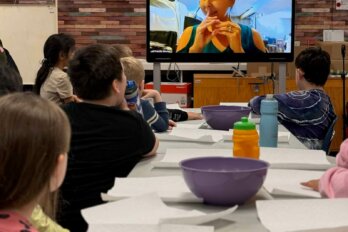In light of the current trend towards blurring fiction and memoir, we asked the nominees of the 2019 Amazon Canada First Novel Award to reveal exactly how much of themselves is infused in their works.
Authors, and artists of all description, lifting material from their own lives is a tale as old as time. Yet, in recent years, perhaps spurred by the success by auto-fiction stalwarts like Sheila Heti and Maggie Nelson, the impulse to categorize and delineate between works of pure fiction and tidy memoir seems increasingly moot.
Indeed, the nominees for this year’s Amazon Canada First Novel Award are admittedly guilty of this same literary robbery: Tanya Tagaq, author of Split Tooth, divulges that her very own parents pegged similarities between small-town acquaintances and the gaggle of characters that populate their daughter’s dreamy, frigid coming-of-age story. Like Tyler Hellard, the protagonist of Searching for Terry Punchout is a magazine writer from out east. He’s an aspiring sportswriter desperate to flee the trappings of Maritime life. Coincidence? Hardly. But the extent to which each nominee borrowed scenery from their personal lives varies—here, they reveal it all. Almost.
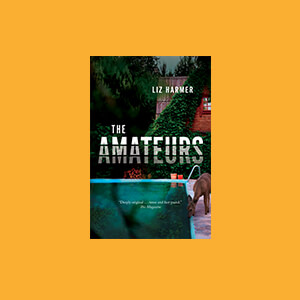
“I read a lot of auto-fiction and would like to write it, but The Amateurs is mostly invention. I stole ideas from my life in a more traditionally fictional, less Sheila Heti, way. The novel came out of a time when I was obsessively writing short stories about a couple that looked a lot like my husband and I: she was an aspiring artist, and he was a philosophy student who was working to become a professor, which was our life at the time. The apartment they lived in was modelled after an actual building in Hamilton. I was definitely thinking about long-term relationships—namely, my own—and what happens to screw them up. The catalyst for the time-travel portals in Amateurs came of my own fear that I might do something in my marriage that I would regret. I had the fantasy of being able to fix something.
“Another inspiration for the time travel [motif] was a guy I had dated who believed we came from reptiles. We would go stargazing, and he would spend the whole time looking for UFOs. For some reason, I seemed to have a lot of men in my life who were interested in paradoxes. But I am personally quite nerdy too. I should own that.”
—Liz Harmer, The Amateurs
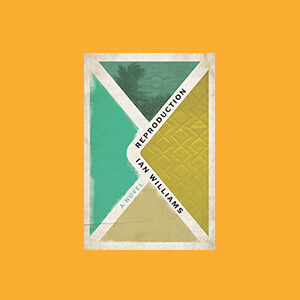
“What people generally want to know is, Are the events in my novel true? Did this or that happen? It’s a way of trying to trace a story back to the mind that created it. I’d have to say there isn’t much of my life in Reproduction—it’s nothing near auto-fiction. The plot is made up. And yet I think our lives are more than plot. If I thought of myself as a series of experiences, then I’d be more of a profile or a feed than a human. Years of my life are in Reproduction, years of effort, thought, feeling, frustration, discovery. Almost zero events. A novel about my life would be a novel about making granola and battling email.
“Each character has a trace of my DNA, but I don’t share a strong resemblance to any of them. To be extreme, I could say the similarities are overwhelming. Army has parents. Whoa, I have parents. Edgar’s German. Uncanny! I flew through Frankfurt two weeks ago. Felicia drives. No way! Etc. You see? Fiction helps us find bits of ourselves in characters who generally don’t resemble us. As the points of contact pile up, the resemblance between us and characters grow stronger. Reading fiction is inherently empathetic.”
—Ian Williams, Reproduction
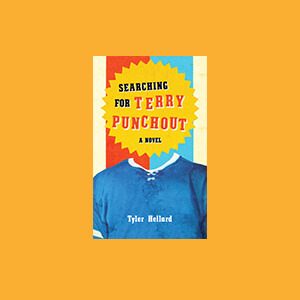
“I ’m sure its possible to separate yourself out of your work, but you’d have to be a much better writer than I am. I haven’t done a lot of short fiction—I mostly did magazine work and copywriting. So that old thing about writing what you know? I did it consciously, but I didn’t really have a choice.
“I wanted to write a book about growing up in a place you eventually run away from because you hate place and people, only to discover later on that it wasn’t them—it was you. Certainly there’s a lot of Summerside, where I grew up, in the story’s town and people. I also stole all of the nicknames from real people, but there’s no one-to-one comparison in terms of how the characters reflect real life. The fact is, a lot of people pull on strings from their experiences, but a lot of people are churning out a lot of books—you’d run out of your own material at some point.”
—Tyler Hellard, Searching for Terry Punchout
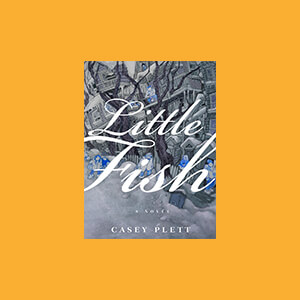
“How much of me is on the page? I’ll tell you what I told my family when it came out: I don’t actually believe either of my grandfathers were secretly transgender. That’s the only fact I’m willing to part with. I love auto-fiction, don’t get me wrong. I love Eileen Myles. Part of the reason I’m resistant to share is because I remember that, as a kid, I’d be so fascinated by interviews with the author, and when I saw them say, ‘This actually happened’ or, ‘That’s actually my mom,’ it sort of took the magic out of it for me.
“When it comes to trans stories, there’s a thing called ‘autobiographical impulse,’ where people get fascinated by the weird minutiae of our lives. It’s not unique to those stories, but is certainly something we have to deal with quite frequently. I really love that there are so many of us writing about stuff that we’ve faced. It’s so important for those stories to be told. I want to make room for us to go where our imaginations take us in a way that other writers are allowed.”
—Casey Plett, Little Fish
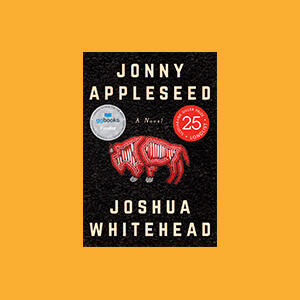
“I‘d call Jonny Appleseed a biotext, totally, although what bits are personal I’ll leave up to the imagination. For me, the act of writing is about the idea of putting the body on the line—always. I think storytelling, particularly for BIPOC, queer, and trans writers, is always one inherently linked with the political, so I don’t have the ability to disassociate or disembody myself from my narratives. Jonny, in particular, has sat with me for well over a decade: when I was younger, I held on to him and a whole cast of characters that wanted to be born into orality. In that time, Jonny has leeched personal experiences, made them his own, lived alternatively, in a world of his own making, and done what he does best: he loved my humiliations so much they transformed into humilities.”
—Joshua Whitehead, Jonny Appleseed
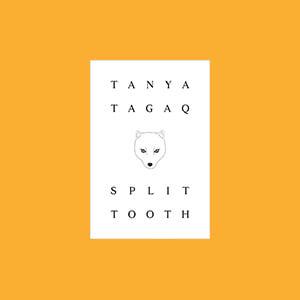
“I couldn’t split hairs and reduce it down to a percentage, but there are large chunks of nonfiction, pure fiction, and embellished truths in Split Tooth. What I find entertaining is the process of people not knowing which parts are which. Sometimes I’ll say, ‘I actually did have a really big giant Arctic char swim into my pussy!’ That’s my favourite way to troll.
“The interesting thing about Split Tooth is that it was 80 percent written before I even considered publishing it. It was a combination of a dream diary, ideas, and stories from early childhood and my early twenties, which explains why they have a crackle of memory to them. My mother and father could tell what every single piece was about, and I often have friends message and ask, ‘Is this me?’ There’s a reason people remain nameless. But if [the reader] gets hung up on determining what is real and what isn’t, they won’t just fall into the story. And that’s the fun of it.”
—Tanya Tagaq, Split Tooth



